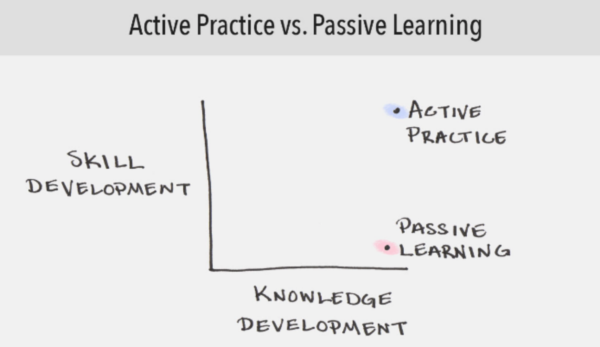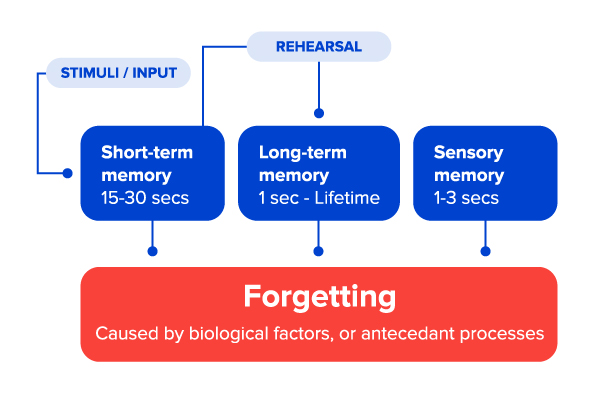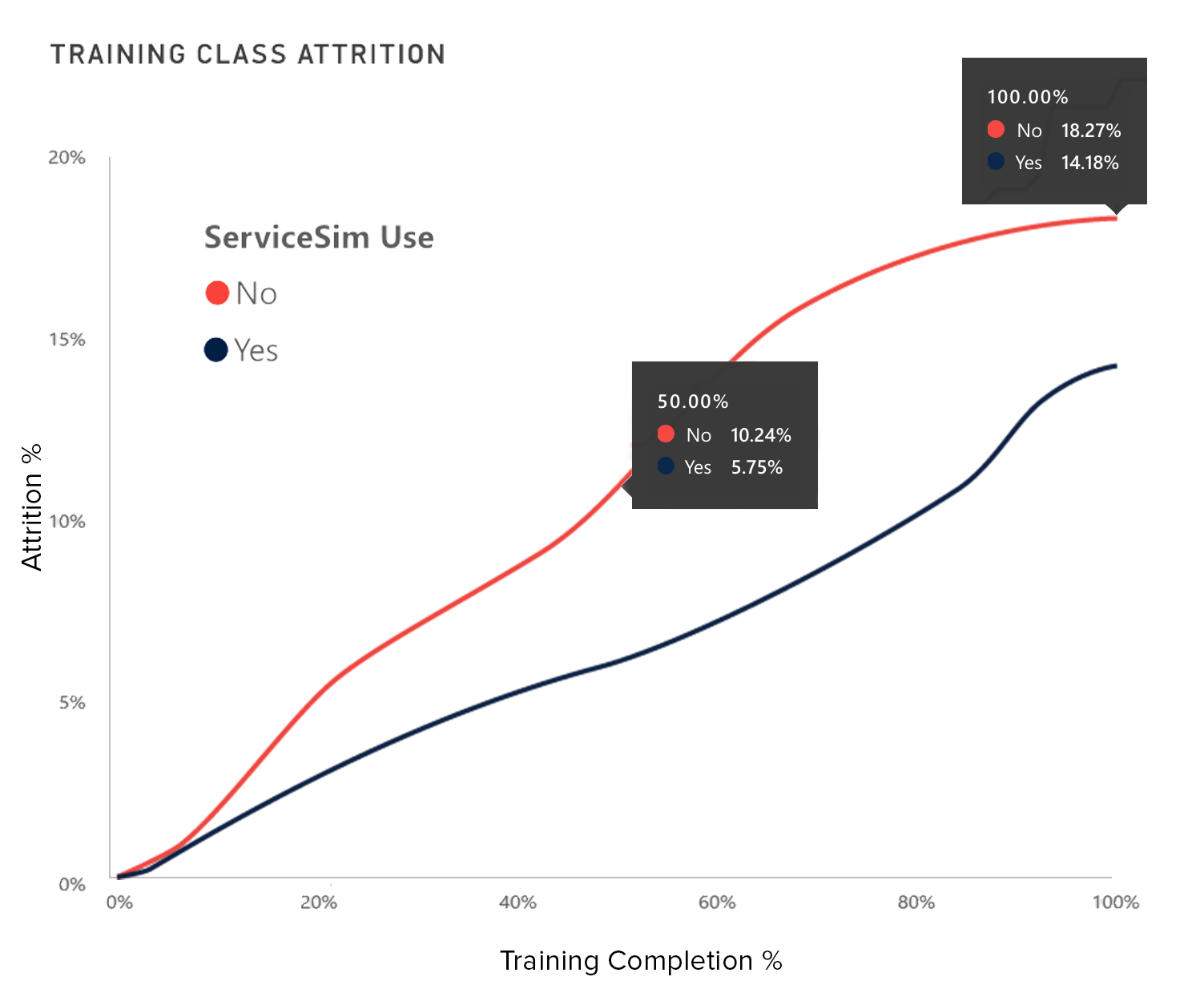Any contact center trainer knows that getting agents ready to handle customer issues effectively takes more than just a “Drill and Kill” approach. In addition to traditional classroom training, effective learning is essential for agents to grasp the concepts they encounter in the educational landscape.
One of the most powerful ways to improve call center coaching and enhance learning is through understanding the psychology behind intentional practice. Unraveling the mental mechanisms that make deliberate practice an indispensable learning tool can significantly improve the way agents approach educational tasks.
Let’s explore intentional practice’s key components, how it affects our memory, and how it makes a lasting impact on learning retention.
Download Now: Your Roadmap to Successful AI Implementations in the Contact Center
Maximizing Retention through Deliberate Practice
Deliberate practice is an essential component of intentional practice, as it targets a student’s short-term memory. By engaging in repetitive and focused practice, learners can reinforce the information in their short-term memory and eventually transfer it to their long-term memory. This transition creates a more stable foundation for future learning experiences, allowing students to expand their knowledge base by making complex associations between new and existing information.

A well-executed intentional practice strategy can help stimulate the mind, preventing the information from being forgotten. By engaging in rehearsal, agents can commit the knowledge to their long-term memories, significantly improving their retention of the material. This retention enables them to approach future tasks with greater confidence and understanding.
Timely and Descriptive Feedback
Feedback is a vital component of any learning process, and intentional practice is no exception. Especially if it is timely and descriptive, good feedback plays a pivotal role in providing learners with the insight they need to refine their strategies and improve overall performance.
Timely feedback allows agents to correct their course of action as they continue to practice. Descriptive feedback outlines specific areas for improvement, providing targeted guidance towards better performance. When trainers focus their feedback on specific aspects of a task, agents are better equipped to understand the impact of their actions and adapt accordingly.
By offering the right type of feedback, trainers can promote a continuous loop of improvement. This feedback helps ensure that agents reap the full benefits of their practice efforts, enhancing their skills and understanding of the subject matter. Ultimately, this feedback loop can contribute to fostering a stronger sense of self-efficacy and motivation among learners.
See How ServiceSim is Like AI-enabled Batting Practice for your Agents
Reinforcing Learning through Repetitive, Related Tasks
Agents should be given multiple opportunities to engage in a wide variety of practice tasks that challenge them in slightly different ways. By participating in different types of related activities, learners can build upon their foundational knowledge and refine their problem-solving skills. This repertoire of experiences can help sharpen their understanding and appreciation for the subject matter.

Repeating similar tasks strengthens the neural pathways associated with specific skills. It creates a more robust memory trace and allows learners to access their knowledge with greater ease. This diversity in practice prepares agents for dealing with real-world scenarios that demand adaptability and flexibility. Furthermore, engaging in a range of tasks can help keep learners motivated, ensuring that they stay interested and committed to the intentional practice process.
Designing Effective Practice Tasks: Catering to Individual Needs
The design of practice tasks is crucial to the success of an intentional practice strategy. When creating assignments, trainers should consider the agents’ existing knowledge and skill levels. Tasks should be simple enough, causing learners to become bored and complex, which can lead to frustration and loss of motivation.
Creating tasks that strike a balance between challenge and achievability can help agents experience success while still pushing them to grow. This equilibrium fosters an environment where learners can maximize the benefits of their practice sessions and feel motivated to tackle future challenges head-on.
Our ServiceSim solution, for example, provides a platform that caters to the individual needs of agents, ensuring that they receive the appropriate level of challenge and support. Trainers can use ServiceSim to create tasks tailored to their agents’ existing knowledge, giving them an environment where they can excel and flourish.
Embracing the Power of Intentional Practice
Intentional practice is a potent tool that can transform the way agents approach learning. By incorporating deliberate rehearsal, providing timely and descriptive feedback, and designing effective practice tasks, trainers can help learners maximize their potential and achieve remarkable progress.
Vistio’s ServiceSim can be a valuable ally in your journey to improving training, offering a comprehensive platform for both trainers and agents to engage in efficient and effective intentional practice. From optimizing retention to fostering motivation, intentional practice is a journey well worth embarking on for any learner seeking to take their educational experience to the next level.
Embrace the power of intentional practice and discover its valuable psychological foundations. By unlocking the secrets behind this approach, you can offer your agents the ultimate learning environment – one that nurtures their growth, understanding, and ongoing development.
SUBSCRIBE FOR EMAIL UPDATES

